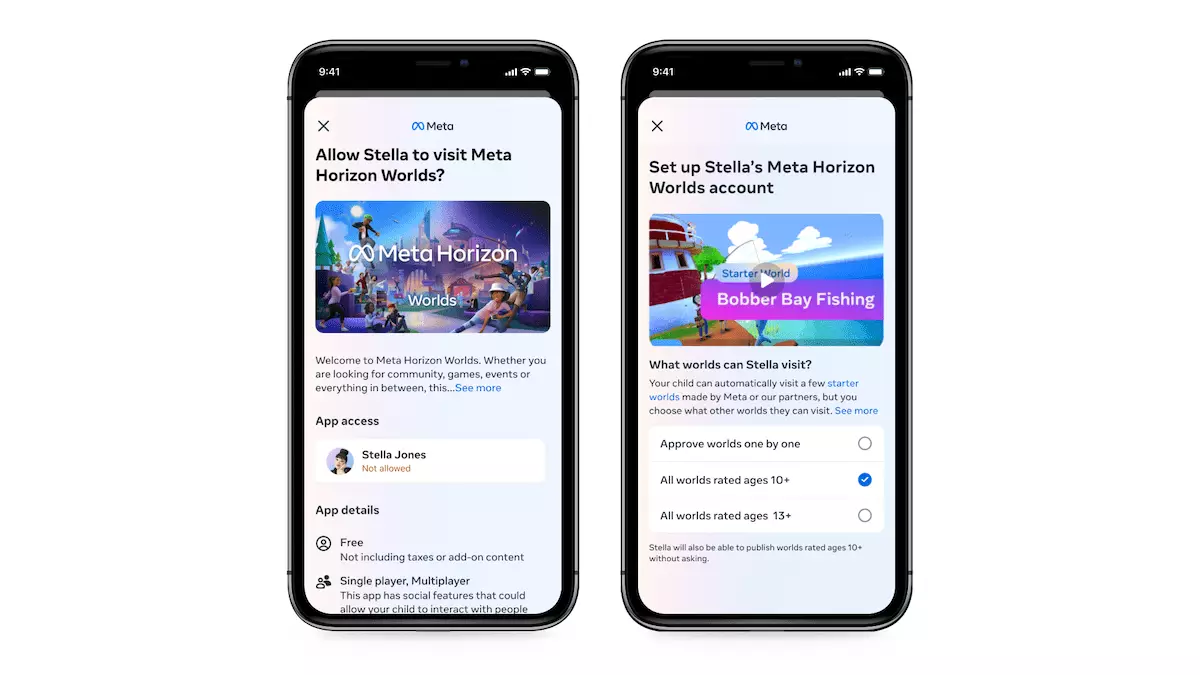Meta has recently announced that preteens, aged 10 to 12, can now explore different experiences in its online virtual reality (VR) platform, Horizon Worlds. With parent-managed accounts, parents can approve age-appropriate worlds for their children to access. These worlds include hanging out in The Space Station, exploring The Aquarium, and playing the Spy School racing game.
In an effort to ensure the safety of young users, Meta has implemented additional safety measures in Horizon Worlds. One key feature is the new rating system that categorizes worlds as 10+, 13+, or 18+, indicating their appropriateness for younger users. Parents can approve all 10+ rated worlds at once, making 18+ worlds inaccessible to preteens. Moreover, there are no follower suggestions, and preteens’ status and visibility settings default to “offline” unless parents choose to enable them. The “Personal Boundary” setting is also permanently on, creating a virtual bubble around avatars to prevent others from getting too close.
Meta has introduced the ability for parents to individually approve contacts that their child can chat with and invite to join them in VR experiences. Additionally, users with Meta Quest 2 or 3 headsets must re-enter their birthday before using the device. Parent-managed accounts for preteens have been available since June 2023.
Despite the new safety measures, some parents and guardians may still have doubts about Meta’s ability to protect their children. The company has faced criticism for failing to keep underage users safe on its platforms, with accusations of intentionally targeting children and ignoring inappropriate content exchanges. Lawsuits filed by the New Mexico Department of Justice and 42 U.S. state attorneys allege that Meta has prioritized growth over the well-being of young users, raising concerns about the long-term impact on children’s mental health.
While Meta’s introduction of parent-managed accounts for preteens in Horizon Worlds is a step towards enhancing safety and parental control, lingering criticisms about the company’s handling of underage users highlight the ongoing challenges in fostering a secure online environment for children. As technology continues to evolve, it is essential for companies like Meta to prioritize the well-being and protection of young users in virtual spaces.

